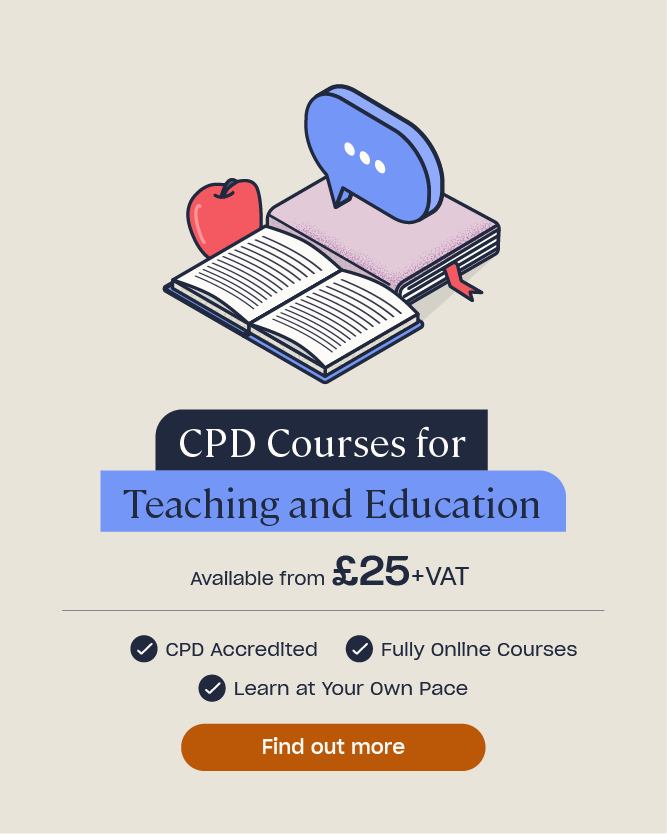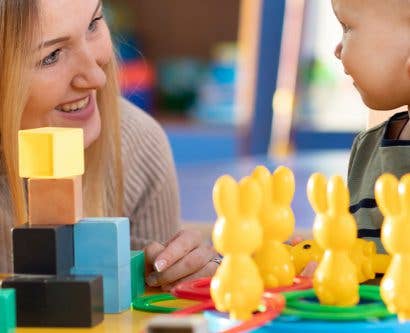How to Become a Primary School Teacher
A career in education can be incredibly rewarding and fulfilling. Teaching offers you the opportunity to mould young minds, share your knowledge and provide future generations with the wisdom and understanding to change the world. Primary school teachers work with children aged 5 to 11 years old, providing them with core foundational knowledge that will be integral to their academic careers.
Primary school teachers are incredibly impactful on a child’s education and how they view their academics. With their support and encouragement children can be emboldened to actively engage with their studies and develop an academic curiosity that guides and fuels their futures. In this article we will cover the key roles and responsibilities of a primary school teacher and the skills and qualifications necessary to become a primary school teacher.

Roles and Responsibilities of a Primary School Teacher
Primary school teachers have a wide range of responsibilities which will vary according to the key stage they work with. Nevertheless, the core responsibilities of a primary school teacher include:
- Planning and teaching lessons
- Preparing teaching materials and activities
- Marking work
- Talking to parents and carers about their child’s progress
- Organising trips, after school activities and sports events
- Managing the work of teaching assistants
- Following safeguarding procedures and statutory safeguarding guidance such as Keeping Children Safe in Education (KCSIE)
As mentioned, a primary school teacher’s role may vary depending on the key stage that they work with. School years are grouped into different key stages and each key stage has its own developmental focus. In primary school the key stages are key stage 1 (KS1) which covers years 1 to 2, and key stage 2 (KS2) which covers years 3 to 6. Reception is the first year of primary school and the last year of the early years foundation stage (EYFS). As with KS1 and KS2 it therefore has its own requirements for teachers.
Reception 
Reception is the first year of primary school for children aged 4 to 5 years old. For many children reception marks their first foray into formal education and a more structured school setting. There are 7 key areas of learning and development that a child will cover in reception. These are:
- Communication and language
- Personal, social and emotional development
- Physical development
- Literacy
- Mathematics
- Understanding the world
- Expressive arts and design
At the end of reception a child’s level of development is assessed against the goals set out in the EYFS statutory framework.
Key Stage 1 (KS1) 
Key stage one includes years 1 and 2 of primary school for children aged between 5 and 7. In KS1, children develop core foundational skills in maths, reading and writing. KS1 teachers are responsible for delivering a broad range of lessons to pupils. Schools that follow the national curriculum for KS1 will teach:
- Art and design
- Computing
- Design and technology
- English
- Geography
- History
- Maths
- Music
- Physical Education
- Science
State schools must also teach religious education and relationship and health education. At the end of year 1 children’s reading ability will be tested with a phonics screening test. At the end of year 2 they may sit a more formal maths and English exam to assess what they have learnt so far.
Key Stage 2 (KS2) 
Key stage 2 includes years 3 to 6 of primary school for children aged between 7 and 11. Students are expected to be more independent during KS2, building upon the skills they learnt in KS1. KS2 form teachers will likely be responsible for teaching their pupils all subjects. Schools that follow the national curriculum for KS2 will teach:
- A foreign language
- Art and design
- Computing
- Design and technology
- English
- Geography
- History
- Maths
- Music
- Physical Education
- Science
State schools must also teach religious education and relationship and health education. At the end of year 4 a child’s maths ability will be tested with a multiplication tables check. At the end of KS2 pupils will sit national exams in maths, science and English before they move into secondary school.
How to Become a Primary School Teacher
There are three main ways in which you can become a primary school teacher. These are:
- A university course
- An apprenticeship
- Working towards the role
The route that you choose to take to become a primary school teacher will impact what qualifications you need and what qualifications you attain. Your qualifications may also vary depending on the setting or if you choose a specialism. For example, you do not need a formal qualification in education to work in an academy or independent school. Comparatively, you may decide that you want to work with children with special educational needs and disabilities (SEND) and so may choose to pursue additional qualifications so that you can fully support them.
The path that you take may also be impacted by your current stage in life. If you are just beginning your career then an undergraduate degree or apprenticeship can provide you with all the knowledge and experience you need before starting your career. On the other hand, if you are changing careers, then you may choose to do a Postgraduate Certificate in Education (PGCE) and study around your current job. Below you will find a breakdown of the three main ways you can become a primary school teacher.
University 
One of the most common ways to begin a career in education is to get a degree. You can do an undergraduate degree that leads to qualified teacher status (QTS) such as:
- Bachelor of Education (BEd)
- Bachelor of Art (BA) with QTS
- Bachelor of Science (BSc) with QTS
It’s important to note that if you pursue a BA or BSc with the goal to become a teacher you need to ensure that the course results in QTS or you will need to complete a PGCE.
A PCGE can be pursued if you have a bachelor’s degree without qualified teacher status. A PGCE can be done at university or through a training programme based in a school. To pursue a PGCE you need to have an undergraduate degree in any subject.
Different courses will have different requirements however you will usually need:
- 5 GCSEs at grades 9 – 4 (A* to C) or equivalent (including maths, English and science)
- 2 – 3 A Levels, or equivalent
- A degree in any subject for a postgraduate (the grade criteria will vary depending on where you choose to complete your PGCE)
Apprenticeship 
If you have a degree and want to teach children from ages 3 to 7 or 5 to 11 then you can apply to do a Teacher Level 6 Apprenticeship. The apprenticeship takes at least one year to complete and leads to QTS.
The entry requirements for apprenticeships vary but you will usually need:
- GCSEs at grades 9 – 4 (A* to C) in English and maths
- GCSE science at grade 9 to 4 (A* to C) for primary school teaching
- A degree for a teaching apprenticeship
- Experience in related work
If you do not have a degree and want to pursue a career as a primary school teacher, you may be eligible to complete a teacher degree apprenticeship (TDA). A TDA is a teacher training programme that offers an alternative route to becoming a qualified teacher. You can currently gain a TDA in maths from a number of selected providers. It’s worth noting that TDAs are relatively new and so the subjects that you can pursue are currently quite limited. More subjects are due to be added throughout 2025.
To be eligible for a TDA you must be:
- A resident of England for the last 3 years or more
- At least 16 years old
To meet the academic requirements for the TDA you will need:
- GCSEs at grades 9 – 4 (A* to C) in English and maths
- GCSE science at grade 9 to 4 (A* to C) for primary school teaching
- A Levels, or equivalent – the number you will need will be set by individual universities
Working towards the role 
If you have experience working as a teaching assistant then you can develop your skills to become a qualified teacher. You will need to complete a degree, which you could do part-time whilst continuing to work as a teaching assistant. You could then move onto a postgraduate teaching course to gain QTS.
Other routes into a career as a primary school teacher include:
School Direct – This is a salaried employment-based route for graduates with at least three years’ experience of transferable work history. School Direct gives you the chance to earn a salary while training towards your QTS without having to pay any tuition fees.
Teach First – This is a two year training programme that leads to a fully funded PGCE. In the first year of your course you will teach 80% of a fully qualified teacher’s timetable as well as attending training days and conferences. In your second year you will be a newly qualified teacher (NQT) teaching a full timetable.
Ambition Institute – This is a 12-month, full time postgraduate course which leads to QTS and a PGCE. You will be placed in a school and receive one-on-one support from a dedicated mentor who will be an experienced teacher at the same school.
Want to Learn More?
Our comprehensive training courses can provide you with the knowledge to teach effectively and confidently. Courses such as our Safeguarding Children in Education course and Special Educational Needs and Disabilities (SEND) in the Classroom course provide you with the necessary understanding to keep children safe and support all students in the classroom.
When starting any career it’s important that you put your best foot forward and make a good impression when applying and interviewing. It’s therefore important that your CV showcases your work experience, relevant qualifications and any valuable transferable skills that you may have. As such, you should ensure that you give your CV the time and consideration that it needs so that it can be as carefully thought out as possible. You can learn more about how to write your first CV here. Moreover, prepping for interviews by considering possible interview questions can help you to feel more confident and ensure your answers are clear and concise.
Primary School Teacher Qualifications
As mentioned above the different qualifications that you will need will depend on the route you choose to take, any specialisms you decide to pursue and where you wish to teach. However, you need QTS to teach in a maintained primary, secondary or special school in England. Maintained schools are those that are funded by local authorities, also known as state schools.
You do not need QTS to teach in Further Education (FE). FE is any education for people aged 16 and over who aren’t studying for a degree. You also do not need QTS to teach in early years, independent schools or academies. That being said, most schools prefer teachers to have QTS.
If you do not have QTS you will need to complete some form of teaching training as detailed above. Each training programme will have its own requirements however to train to teach in primary schools in England you’ll typically need:
- GCSEs at grade 4 (C) or above in English and maths
- GCSE science at grade 9 to 4 (A* to C)
- A bachelor’s degree in any subject
If you do not have a degree you can pursue one of the alternative routes listed above to attain QTS.

Skills of a Primary School Teacher
There are numerous hard skills that a primary school teacher must possess. Most of these hard skills will be attained during teacher training but they can also be attained through independent learning such as online training courses. There are also a range of soft skills that it’s important for a teacher to possess. These include:
- Good communication
- Leadership
- Problem solving capabilities
- Multitasking
- Strong time management
- Emotional intelligence
- Adaptability
- Empathy
- Teamwork
- Organisational skills
- Creativity
- Patience
The list above is not exhaustive and there are numerous other soft skills that a teacher can and should possess. However, those listed above can equip a teacher with the skill set to confidently manage their classroom, plan and teach engaging lessons and to communicate compassionately and effectively with students.
Working as a primary school teacher gives you the chance to share your passion and knowledge whilst shaping young minds. Primary school teachers are incredibly impactful on a students’ academic career, evoking in them a love for learning that can follow them throughout their lives. There are numerous different ways to become a primary school teacher and it’s important that you carefully consider the best route for you so that you can become the best teacher possible.
Further Resources:
- CPD Courses for Teaching and Education
- How to Become a SEN Teacher
- How to Become a Teaching Assistant
- Careers in Education
- How to Teach with Confidence
- Keeping Children Safe in Education: Key Changes
- Leadership in Education: Hierarchy and Leadership Styles
- Safeguarding Children Legislation: Guidance for Schools
- |How to Become a Secondary School Teacher











